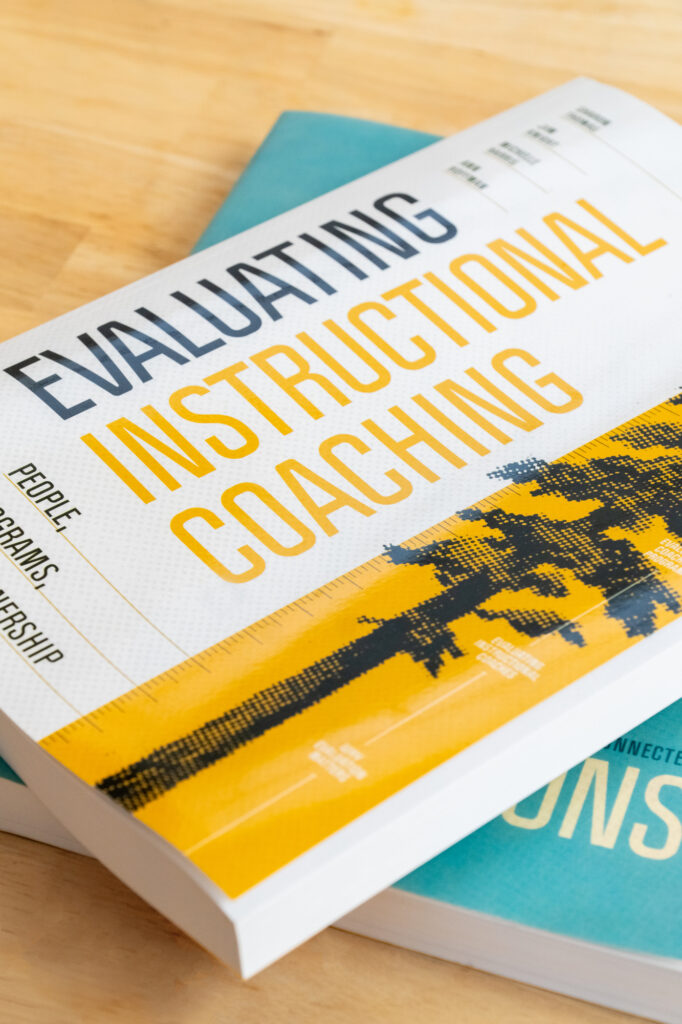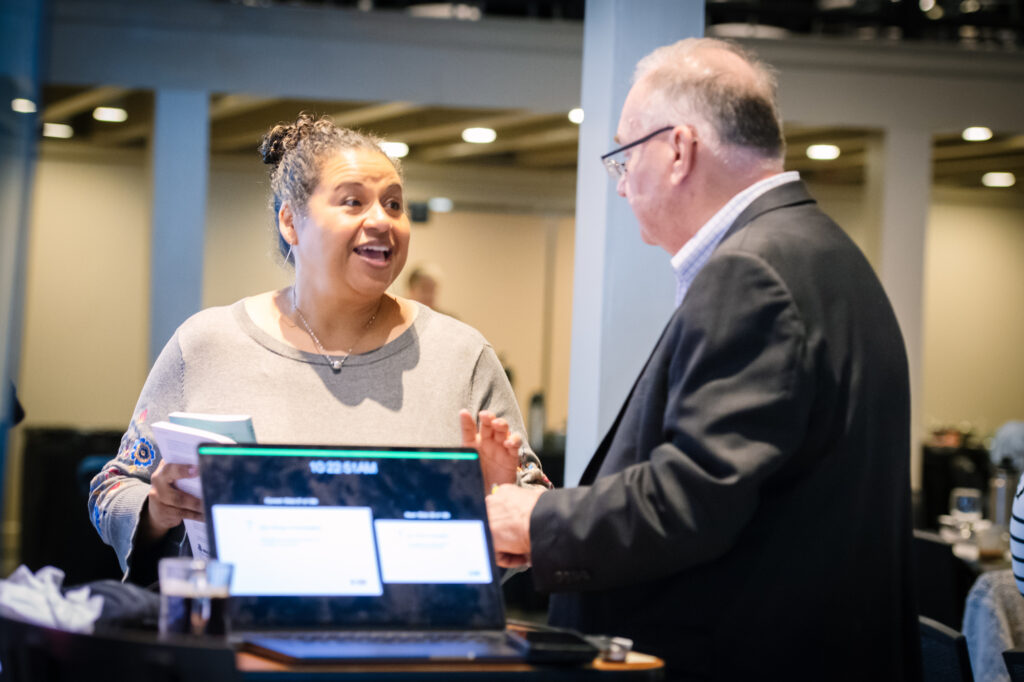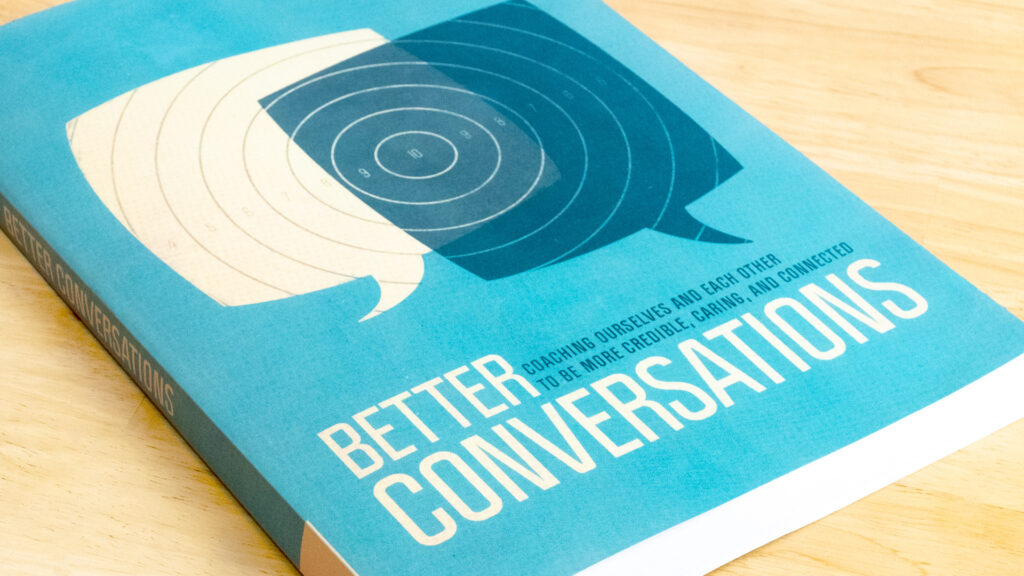As we all continue searching for new ways to do our work and serve student and educators, ICG has created several free webinars based on some of our most essential books and workshops, written and developed by Jim Knight and our senior consultants. In today’s post, we provide an overview of Ann Hoffman’s webinar on bestseller, Better Conversations.

Conversations are the source of some of our greatest joys, as well as our most intense pain. But we are in control of how we participate in conversations, so they don’t have to be damaging. Instead, we can have better conversations by practicing, reflecting on our beliefs, and trying to make our habits more effective. Ann guides us through the topic of better conversations through the use of four guiding questions:
- Why is the way I communicate important?
- What are the six better conversation beliefs?
- What are the ten better conversation habits?
- How can I apply these to my conversations?
The Importance of Communication
Communication is not only central to school improvement; it is also essential to a fulfilled life. While we are more connected now than ever, we are also more polarized and divided than ever. It’s important to ask ourselves if we are creating an epidemic of loneliness, disengagement, and isolation. Or are we remaining hopeful? It’s all about positive relationships, which develop one encounter at a time.
Six better conversation beliefs
People often ask, “If I try to change how I communicate, won’t I look like a fake?” This will only happen if we are not authentic, and to be authentic, we need to know what we believe.
“To see others as equal conversations partners, do we honor their expertise, understand their needs, and use a partnership approach?” — Jim Knight
If we act in ways that are consistent with what we believe, then we are authentic. We can ask ourselves targeted and intentional questions to see how our actions align with these beliefs. To see others as equal conversations partners, do we honor their expertise, understand their needs, and use a partnership approach? To hear what others have to say, are you allowing others to do most of the talking and fully present in the conversation? If you believe others should have autonomy, do you offer choices instead of directives and think WITH others? To avoid judging others, do you listen without making assumptions, avoid giving unsolicited advice, and seek the opinions of others? Do you engage in dialogue or monologue? And do your conversations inspire yourself and others, increase well-being, impart positive energy, and protect everyone’s self-esteem?
Ten better conversation habits
A habit is a deliberate choice to do something that we aren’t currently doing until it becomes a part of us. These ten habits embody the beliefs explored above, and Ann takes a closer look at several of the most essential habits: Demonstrating Empathy, Listening, Asking Better Questions, Finding Common Ground, and Building Trust.
To understand how to demonstrate empathy, we need to imagine how it would feel to be in someone else’s shoes and avoid inventing stories about others to fit our picture of them. While empathy fuels connection, sympathy drives disconnection because it focuses on our feelings instead of those of others.
Hearing is an act of the senses, but listening is an act of will. There are 4 strategies that can help us become better listeners:
- Commit to listening
- Be the listener, not the speaker
- Pause to make sure you’re opening up
- Don’t interrupt
When we ask questions, we should consider whether we are asking them to take someone where we want them to go or if we are genuinely curious. Michael Bungay Stanier proposes five questions which can help stimulate deep thought and consideration and keep us from leading:
- What’s on your mind?
- What’s the REAL challenge?
- What do you want?
- What was most useful?
In a time of such division, we need to find common ground more than ever. There is more that unites us than divides us, so there is plenty of common ground to find, but using the acronym I C.A.R.E. can help guide us. Do we have common Interests, Convictions, Activities, Roles and Responsibilities, or Experiences?
Trust
Finally, trust is essential to any relationship, and with every interaction it either increases or decreases. Trust is a willingness to be vulnerable, and vulnerability builds courage. So to build trust, we must consider if we embody character, reliability, competence, warmth, and stewardship. Do we have our partners’ best interests at heart? Can they count on us? Can we back up our words? Are we present, vulnerable, and kind? Do we put their interests ahead of our own?



None of us are perfect, so, like all learning, cultivating better conversations is an ongoing process. But with the beliefs, habits, and tools like reflection forms (three included above) and the other free book enrichment tools for Better Conversations, we can all have life-giving conversations and build stronger and more meaningful relationships.
Watch the complete webinar and let us know your thoughts in the comment section below!




























